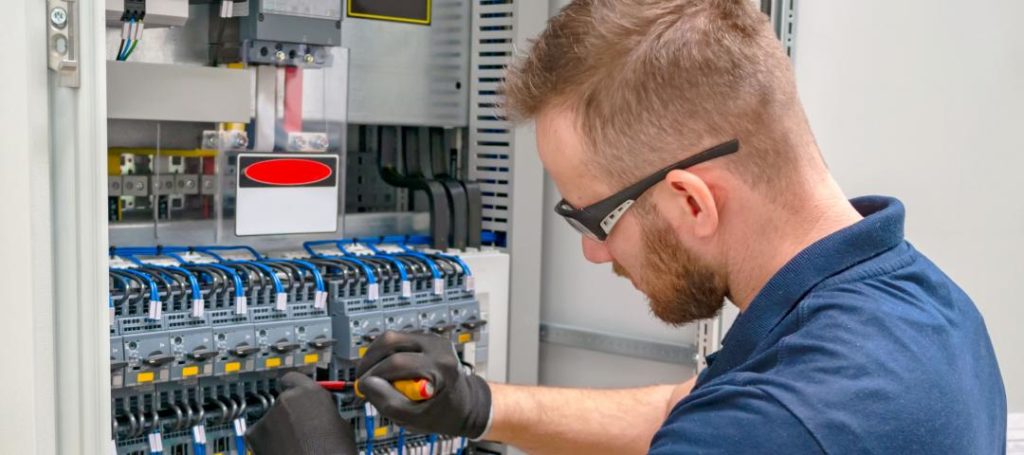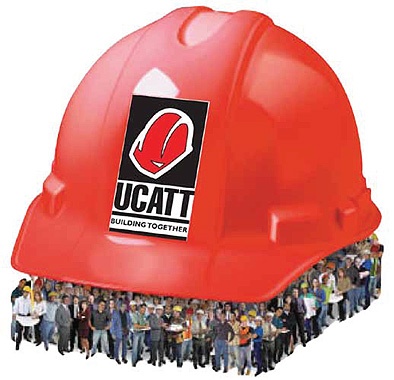By Frank Morris (UNITE)
A lot of members have asked me what is happening with regard to the Electrical, Mechanical and Engineering and Construction sector (EMEC) and how it fits into UNITE’s democratic structures.
For the last three years, Tony Seaman and I have constantly raised the issue that sector committees do not reflect UNITE’s membership in the construction industry. We have constantly asked that this be resolved and that a fair allocation of seats on the constitutional committees would be better for the construction sector.
It has to be said that despite myself and Tony’s constant representations to the executive officers, there has been little or no movement in response to our requests for fairness, which suggests that the distortion of the lay democracy of that sector may not be accidental.
The issue for my mind started at the merger of the Unite Construction sector with UCATT, “the construction union”. As part of the merger process, UNITE carried out a robust due diligence process. The executive officers said that it would thoroughly audit UCATT’s finances, assets and membership to ensure that the merger would not endanger UNITE and the union would not be saddled with any debts or nasty surprises, as can happen with any merger or acquisition.
Due diligence
On completion of the due diligence and merger, UNITE’s executive officers said that UCATT’s membership was 50,000, the same as UNITE’s construction sector, and a plan was devised to give the existing UNITE sector and the new UCATT membership the same representation on constitutional committees.
What has shocked me and Tony is that the actual membership of UCATT was in fact nearer 25,000, with about 14,000 members in local authorities and 7,000 general or civils. The EC and I had been misled regarding the UCATT membership figures, either deliberately, or because UNITE was not capable of working out the number of paying UCATT members in the due diligence process. Either way, we find it sad that such inaccurate information was supplied.

The result of the first three years with the new construction sector has been a complete disaster for the electrical and mechanical sector. With the inflated UCATT membership, former UCATT officials managed to take control of every regional and national construction committee. When this happened, the former UNITE electrical and the mechanical members found that all their motions could be blocked, and they were unable to pass resolutions through the democratic structures.
There was also a failure on the part of the new officers to recruit electrical and mechanical shop stewards. In London, for example, probably the biggest region within Unite, not one electrical shop steward or representative was recruited by the four new UNITE, formerly UCATT, officers.
Activists attacked
The situation of having our existing activists attacked and their motions constantly blocked and the failure to recruit new reps has had an impact on the terms and conditions of UNITE members and on the ability of the mechanical and electrical membership to be able to bargain collectively.
Without constitutional power we are also powerless to protect our skills and to protect our trade. Is it really a surprise that last year, an officer entered into negotiations at Hinkley Point C to introduce a deskilling grade, and that he didn’t feel it necessary to consult the mechanical and electrical membership?
The marginalisation of what had been the UNITE mechanical and electrical membership within the new constitutional structures has pushed combines to the forefront, in attempts to improve the industry. Great work is being done, but it doesn’t get away from the fact that the mechanical and electrical membership is the only set of workers in Unite who are denied constitutional power.
Tony and I have constantly raised these problems and issues as elected Executive Council members. Indeed, we are the only two construction members elected by a national vote of the membership to oversee construction and to speak for construction membership. This has resulted in many personal attacks on us and for the last two years I have not been able to attend a regional or a national industrial sector committee (RISC/NISC) meeting, because I would be constantly attacked. Tony has continued to attend and has also had his character under constant attack.
Fair allocation
The next term for the RISC and NISC for the upcoming election period is about to start again. Tony Seaman and I have asked for fairness, and for all members to be given a fair allocation and a uniform system for devising seats, with allocation based on membership. Again, myself and Tony feel that we have been ignored by the Executive Officers and the current RISC and NISC chairs who, a) were elected on an illegitimate basis and b) have already shown a bias against the mechanical and electrical, and c) were allowed, despite our objections, to determine their individual sector committee makeup.
So, it is not a surprise that the mechanical and electrical again do appear to be marginalized. In regard to the NISC, there is real danger that the mechanical and electrical will not have any seats on the construction sector national committee at all, as the chairs have decided on a regional allocation, which is already marginalized, and not trade make up.
I have touched on how the lay democracy has been manipulated within the former UCATT sector. There is also another issue which has been a constant concern and it is another reason why the mechanical and electrical has been marginalized. In UNITE the union, the membership is broken up into sectors.

For example, if you are an electrician who does maintenance in hospitals you would be in the health sector as this is where your terms and conditions are determined. But if you are a construction electrician and got a job in an airport doing maintenance, you would find yourself transferred into the civil air transport sector. This is the custom and practice in line with rule 7.1, which says, Members in employment shall be allocated to the Industrial Sector in which they are employed. The term ‘Industrial Sector’ is a generic term including occupational and professional sectors.
On UNITE’s website, it is clear that estates and maintenance workers in local authorities are allocated correctly into the local authorities’ sector, the local authority RISC and NISC set-up campaigns and collectively bargain in councils where they are employed. The debates and decisions and motions concerning collective bargaining for the local authorities’ estates and maintenance workers happen in the local authority NISC and RISCs.
Currently, there are 15,000 local authority estates and maintenance members sitting in the construction sector taking up seats on constitutional committees, taking part in debates, and voting on resolutions in an industrial sector in which they do not work.
Political agenda?
The question we have to ask is, “Is this about industrial logic in the best interest of lay democracy and our members? Or does this have a political agenda and is really about control of constitutional committees in a numbers game?”
I’ve been a member of UNITE for nearly thirty years and always believed that a union had to have a lay democracy. Lay democracy must be at the heart of it. What I have seen over the last few years is a number of untruths and omissions, backed up with lip-service and hostility to those who have raised questions.
It has enabled lay democracy to be distorted to fit an agenda, against the wishes of one set of workers. What is ironic is that in the dark days of the EETPU and Chapple, the electrical rank and file were blacklisted by the union’s leadership and the constitutional structures were rigged. I have to ask, what has really changed in 2022?
UNITE is at a crossroads in construction and if it carries on down this road, it will lose its legitimacy as the voice of construction. Rigged, unrepresentative committees populated by managers, cannot speak for the membership. Unite must regain its integrity and the members’ trust by placing genuine lay democracy at its heart.
A reflection of the above issue is that before the merger with UCATT, the construction sector was the fastest growing sector within Unite. Now, despite a boom in the building industry, membership is declining and in fact is one of Unite’s fastest losing sectors. The merger with UCATT isn’t working.
We have elected Sharon Graham as our new General Secretary. We have voted for change. It is vital for Unite to regain its integrity and for change to be visible to the lay membership, as we move into a new election cycle.



